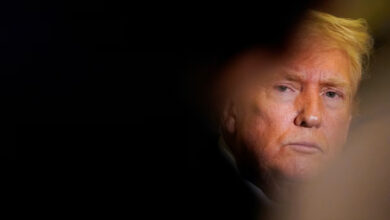Secretary of State Hillary Clinton demanded on Friday that Iran respond within days to a UN nuclear watchdog's accusations of atomic weapons work, and said Washington was consulting allies on further steps to pressure Tehran.
Clinton, speaking at an Asia-Pacific summit in Honolulu, made clear that the United States was seeking to marshal international support for additional sanctions against Iran, but stopped short of specifying actions under consideration.
Her comments followed a report from the International Atomic Energy Agency earlier this week that concluded that Iran had worked on developing an atomic bomb design and may still be conducting such research.
US President Barack Obama was expected to seek a united front against Iran when he meets world leaders, including Russian President Dmitry Medvedev and Chinese President Hu Jintao, on the sidelines of the Asia-Pacific Economic Cooperation summit this weekend.
But Russia and China have said they do not support new sanctions, limiting the chances of pushing through another package of UN Security Council measures against Tehran over its nuclear program.
Clinton, speaking to reporters after talks with her counterparts at the APEC meeting, said, "We discussed the recent report raising serious concerns about the weapons-related work the Iranian government has undertaken."
"Iran has a long history of deception and denial regarding its nuclear program, and in the coming days we expect Iran to answer the serious questions raised by this report," she said.
Clinton said the United States "will continue to consult closely with partners and allies on the next steps we can take to increase pressure on Iran."
Iran, which denies it wants nuclear weapons, condemned the findings of the Vienna-based IAEA as "unbalanced" and "politically motivated" but has yet to offer detailed answers to the agency's allegations.
The IAEA report, and Iran's continued enrichment of uranium that could be used in nuclear weapons, have fueled speculation about the chances of a unilateral Israeli strike on Iran's nuclear sites.
US officials say punitive measures in place against Iran have done severe damage to its economy, and increased fractures among Iran's elite. Iranian President Mahmoud Ahmadinejad acknowledged earlier this month that the sanctions had harmed Iran's banking sector.
But Tehran has shown no sign of buckling to US-led international demands that it halt uranium enrichment and explain its nuclear work.
Washington may impose more sanctions on Iran, possibly on commercial banks or front companies, but is unlikely to take further steps against its oil and gas industry or go after Iran's central bank for now, a US official said earlier this week.




